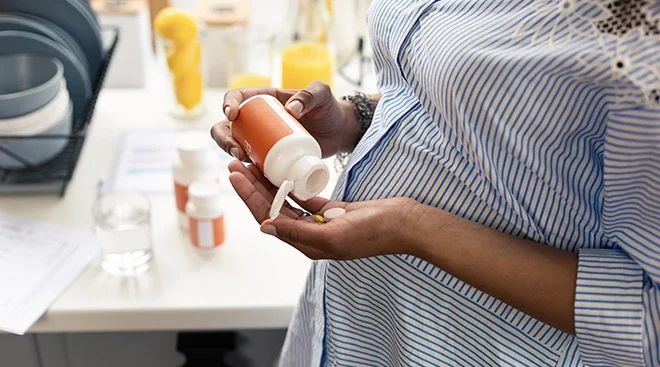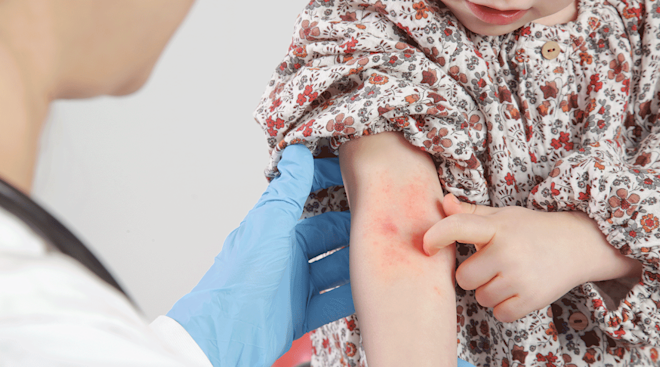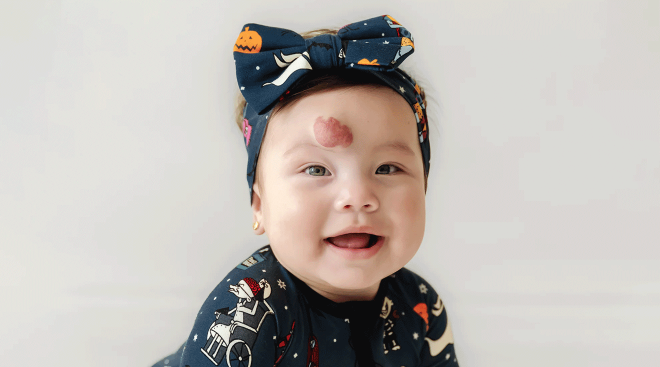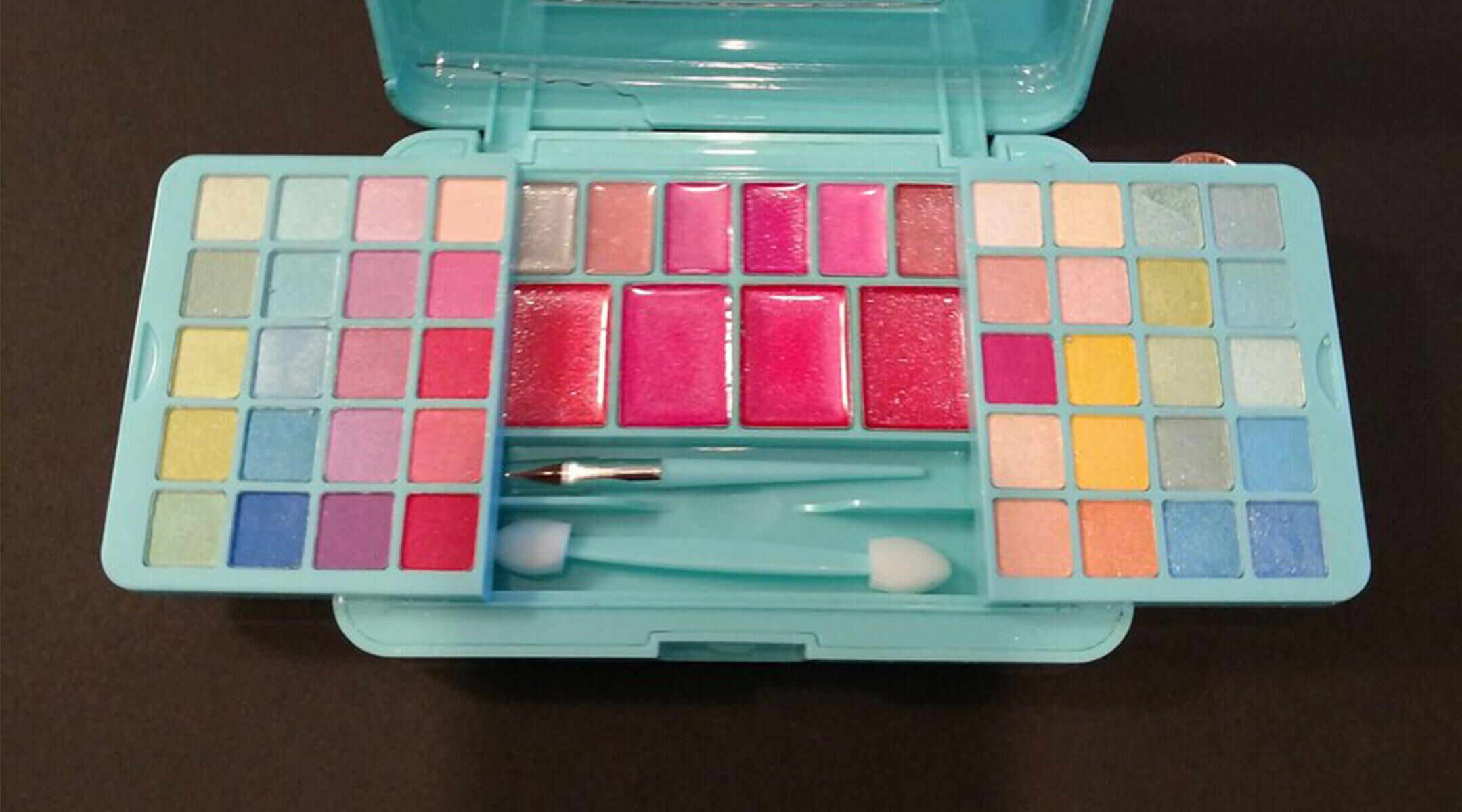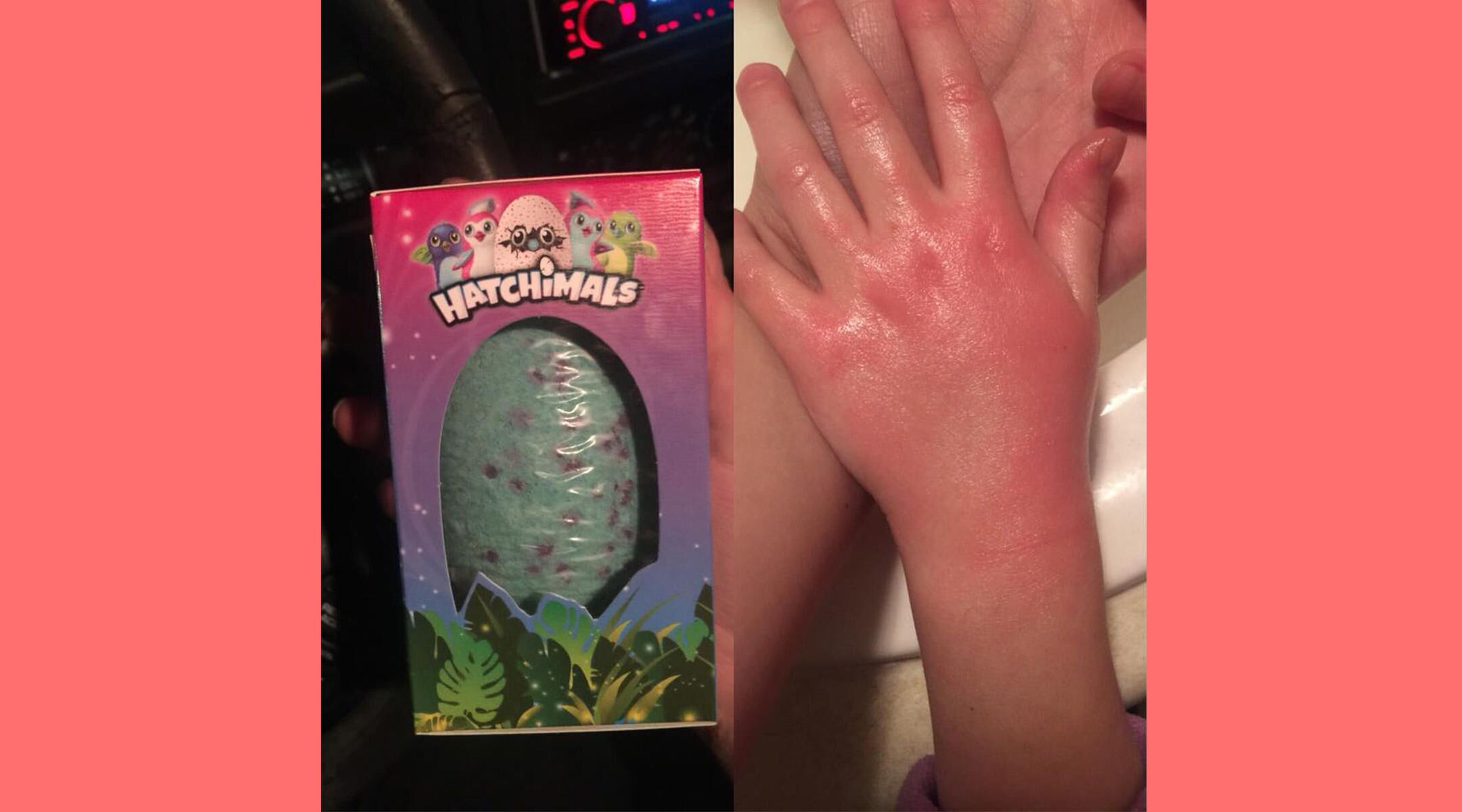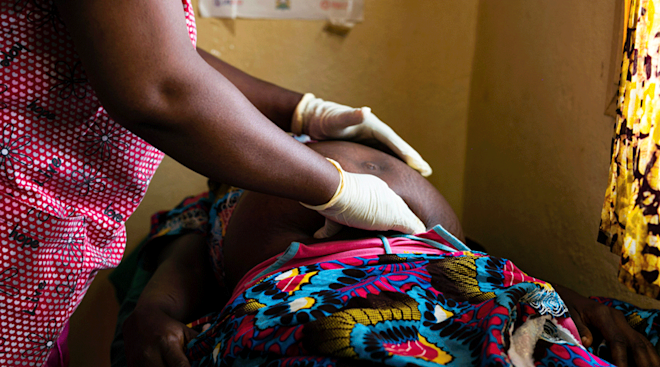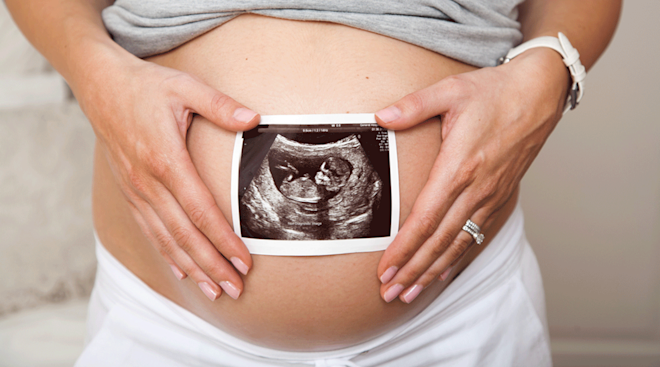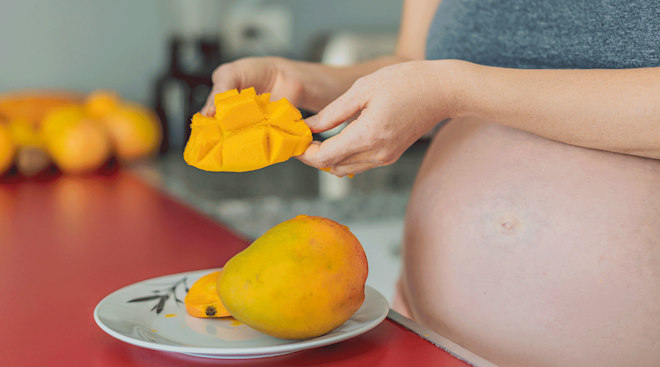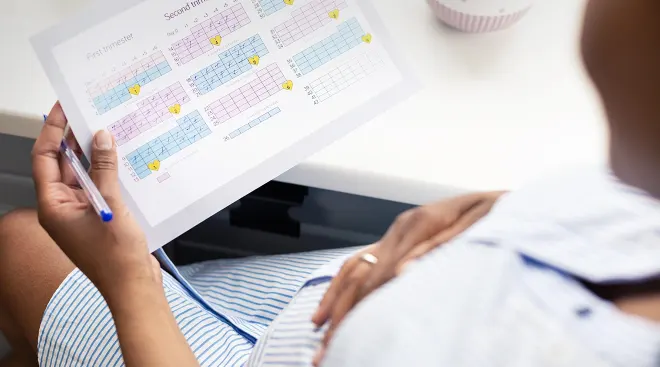This Prenatal Pill May Lower Your Newborn's Risk of Eczema
The key to baby-soft skin? Vitamin D. A new study by the University of Southampton shows that taking vitamin D supplements during pregnancy could substantially reduce the chances of babies up to a year old suffering from atopic eczema.
Atopic eczema is a chronic, usually hereditary inflammatory skin condition that affects 20 percent of babies. Though common and treatable, eczema is often itchy and irritating, with American parents spending thousands of dollars on creams, ointments and other treatments for baby every year.
“We know that vitamin D can affect the immune system and the proteins that make up our skin,” said researcher Keith Godfrey in a statement. “We were interested to know if vitamin D supplements taken by pregnant women would have an impact on their child’s risk of atopic eczema.”
The first study of its kind, researchers enlisted the help of 700 pregnant women—with 352 taking vitamin D supplements and 351 taking a placebo. The study followed moms and their infants through the first four years of their life.
The test results revealed that babies had a lower risk of developing atopic eczema in their first year if their mothers took 1000 international units (IU) of vitamin D a day from 14 weeks pregnant until they delivered. The same results were not seen at ages 2 and 4, suggesting that the benefits wear off after infancy.
A lower risk of developing atopic eczema was particularly seen in babies who were later breastfed for more than a month, bolstering the already firm belief that breastfeeding leads to many immune benefits.
Check out What Causes Baby Eczema—and How to Treat It for more information on atopic eczema and other types of eczema.
Please note: The Bump and the materials and information it contains are not intended to, and do not constitute, medical or other health advice or diagnosis and should not be used as such. You should always consult with a qualified physician or health professional about your specific circumstances.
Navigate forward to interact with the calendar and select a date. Press the question mark key to get the keyboard shortcuts for changing dates.

































